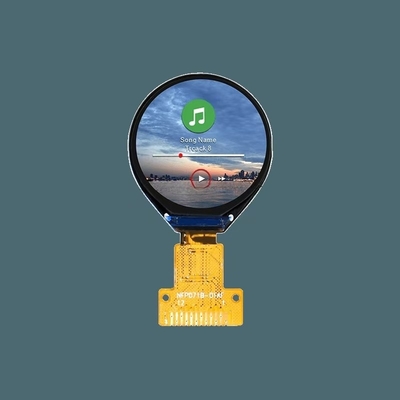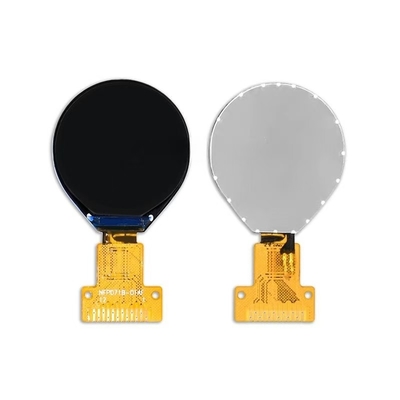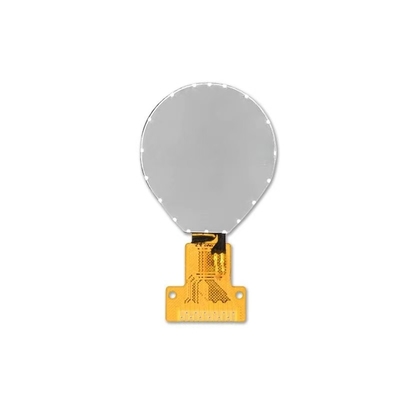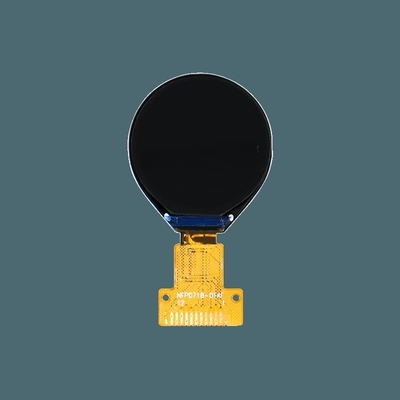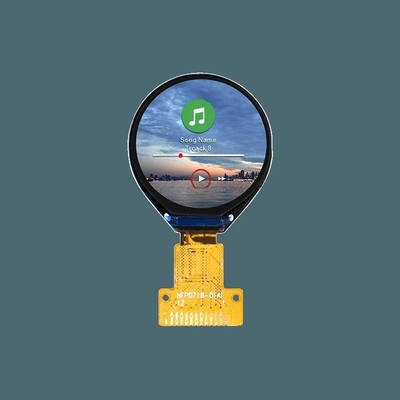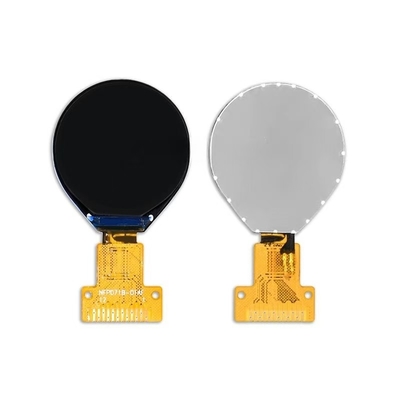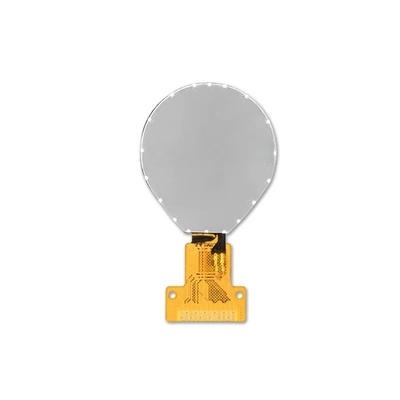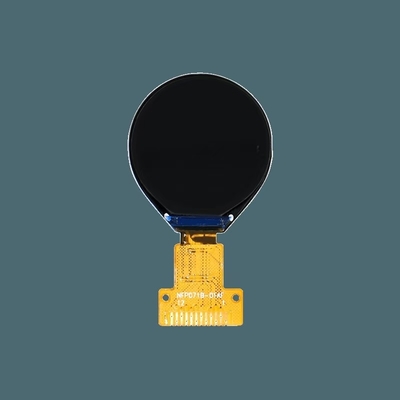All Products
-
LCD TFT Display
-
Touch Screen TFT Display
-
Round TFT Display
-
TFT Color Display
-
AMOLED Display Module
-
Micro OLED Display
-
Bar Type TFT
-
Square TFT Display
-
High Brightness LCD Display
-
COB LCD Display
-
Sunlight Readable TFT
-
UART TFT Display
-
LCD Display Module
-
PMOLED Display
-
Epaper Display
-
LED Digital Display
-
Capacitive Touch Panel
0.71 inch IPS SPI Interface Round TFT Display Brightness for Clear and Bright Display
| Place of Origin | China |
|---|---|
| Brand Name | HuaXin |
| Certification | ISO14001/ISO9001/IATF16949 |
| Model Number | ESHX0711616TBBIG01 |
| Minimum Order Quantity | 1000 |
| Price | negotiation |
| Packaging Details | blister+foam box+bubble bag+inside carton+master carton |
| Delivery Time | 6weeks~8weeks |
| Payment Terms | T/T |
| Supply Ability | 50K per month |
Product Details
| Display Technology | Round TFT Display | Name | Watch Oled Display |
|---|---|---|---|
| Size | 0.71''Round | | Resolution | 160x3x160 Pixels |
| Display Type | IPS | Interface | SPI |
| Highlight | SPI Interface Round TFT Display,0.71 inch Round TFT Display,Clear and Bright Round TFT Display |
||
Product Description
0.71 inch IPS SPI Interface Round TFT Display
This 160x160 resolution LCD TFT is a premium display with serial interface, full view TFT technology. Features built-in GC9D01 controller, hot-bar soldering connection, and RoHS compliance. Custom connections and cover glass options available.
Product Parameters
| Part No. | ESHX0711616TBBIG01 |
|---|---|
| Driver IC | GC9D01N |
| Outline Dimensions (L x W x H) | 20.12mm x 22.3mm x 1.41mm |
| Active Area (L x W) | 17.76mm x 18.00mm |
| Viewing Angle | All directions |
| Operation Temperature | -20°C to +70°C |
| Storage Temperature | -30°C to 80°C |
| Supply Voltage | 2.8V |
| Luminance | 350TYP |
| Connection Type | 12 pin FPC |
Product Images
Drawing & Pin Definition
OLED Product Knowledge
OLED Advantages
- Lighter and thinner than LCDs
- High contrast ratio
- Superior color saturation
- Lower power consumption
OLED Disadvantages
- Higher cost compared to LCD and TFT
- Shorter operational lifetime than LCD and TFT
Company Information
Huaxin Technology (Enshi) Co., LTD
- Location: Hubei, Enshi
- Founded: 2009
- Specialization: Research, development, and production of LCD, LCM, TFT, backlight, and OLED displays
- Registered capital: 20 million
- Current staff: 500+
- R&D team: 10% of workforce
- Quality control: 15% of workforce
Certifications
- ISO14001
- ISO9001/IATF16949
- SGS certified LCD modules
Huaxin Advantages
- Cost-effective inland factory location
- Advanced equipment for stable quality
- Automated processes for efficiency
- 20+ years of LCD industry experience
- Custom product design capabilities
Production Capacity
| Capacity | 2021 (Current) | 2022 (Goal) | 2023 (Challenge) | 2024 (Challenge) | 2025 (Challenge) | Remark |
|---|---|---|---|---|---|---|
| LCD Production | 4.5 | 9 | 9 | 9 | 9 | Unit: thousands of logarithms/Day |
| LCM Production | 70 | 150 | 300 | 450 | 450 | Unit: Thousand piece/Day |
| Backlight Production | 100 | 200 | 300 | 500 | 500 | Unit: Thousand piece/Day |
| OLED Production | 10 | 20 | 30 | 40 | 50 | Unit: Thousand piece/Day |
Product Applications
- Safety boxes & instruments
- Locks & smart home devices
- Transmitters & watches
- Radios
- Collimators & navigators
AMOLED Display Characteristics
- Self-emissive pixels
- Superior contrast ratio
- Excellent color accuracy and vibrancy
- Wide viewing angles
- Power efficiency
- Thinness and flexibility
- Fast response time
AMOLED Power Efficiency Comparison
Power Consumption
- AMOLED: Power consumption per pixel (black pixels consume minimal power)
- LCD/LED: Constant backlight power regardless of content
Content Dependency
- AMOLED: More efficient for dark content (pixels can turn off)
- LCD/LED: Constant power consumption regardless of content
Brightness Control
- AMOLED: Dynamic pixel brightness adjustment
- LCD/LED: Fixed backlight brightness
Display Size Impact
- AMOLED: More efficient for smaller displays
- LCD/LED: Larger displays require more powerful backlights
Recommended Products



